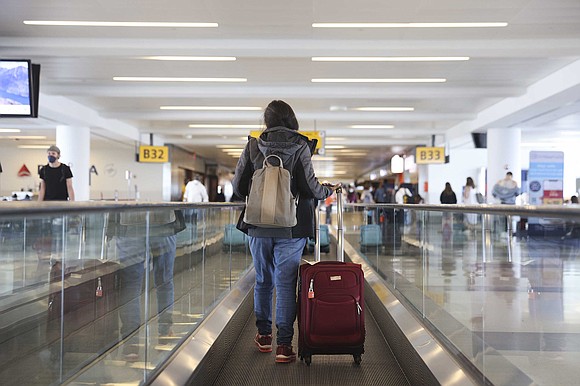Fully vaccinated people can travel at low risk to themselves, new CDC guidance says
CNN/Stylemagazine.com Newswire | 4/2/2021, noon

By Lauren Mascarenhas and Jacqueline Howard, CNN
(CNN) -- The US Centers for Disease Control and Prevention on Friday released a highly anticipated update to travel guidance for people who are fully vaccinated against Covid-19, eliminating some testing and quarantine recommendations.
Fully vaccinated people can travel at low risk to themselves, CDC Director Dr. Rochelle Walensky said Friday, but travel still isn't recommended at this time because of rising numbers of coronavirus cases.
The agency said that as long as coronavirus precautions are taken, including mask wearing, fully vaccinated people can travel within the United States without getting tested for Covid-19 before or self-quarantining after.
For international travel, fully vaccinated people don't need a Covid-19 test prior to travel -- unless it is required by the destination -- and do not need to self-quarantine after returning to the United States. They should still have a negative Covid-19 test before boarding a flight to the US, and a follow up test three to five days after their return, the CDC noted.
The CDC considers someone fully vaccinated two weeks after receiving the last required dose of the Covid-19 vaccine. The updated guidance does not apply to unvaccinated people. The CDC advises anyone who hasn't been fully vaccinated to continue to avoid travel.
Unvaccinated people who must travel should get tested one to three days before travel and again three to five days after travel. They should self-quarantine at home for seven days after travel, or 10 days, if they do not get tested post-travel.
The CDC said all Americans, regardless of vaccination status, should wear a mask and practice public health measures when traveling, such as physical distancing and washing hands frequently.
During a White House briefing on Friday, Walensky said she continues to worry about the coronavirus pandemic -- and with rising case numbers, she still recommends against nonessential travel.
"We haven't changed our guidance for nonessential travel at all. We are not recommending travel at this time, especially for unvaccinated people," Walensky said, emphasizing that the update is meant for those who are vaccinated -- only about 20% of the adult population.
"I still continue to worry that with 80% of the population unvaccinated that we still have a lot of work to do to control this pandemic," Walensky said.
More updates expected
Last month, the CDC released its first iteration of guidance for fully vaccinated Americans, in which the agency said they should avoid travel. Some critics at the time said the CDC's stance on travel for fully vaccinated people was too rigid.
Walensky defended the agency's initial travel guidance at the time, explaining that changes to guidance would be ongoing as more people are vaccinated in the US and that scientific data would inform any recommendations.
"We are very worried about transmissible variants. A lot of them have come through our travel corridors, so we're being extra cautious right now with travel," Walensky told CNN's Anderson Cooper in March. She noted that every time travel picks up, a surge in coronavirus cases follows, citing Independence Day, Labor Day and the holiday season.
Experts say that the US appears to be entering into another fresh surge this spring, which is partially due to more travel. The US averaged 63,974 daily cases over the last 7-days, up 11% since last week.



